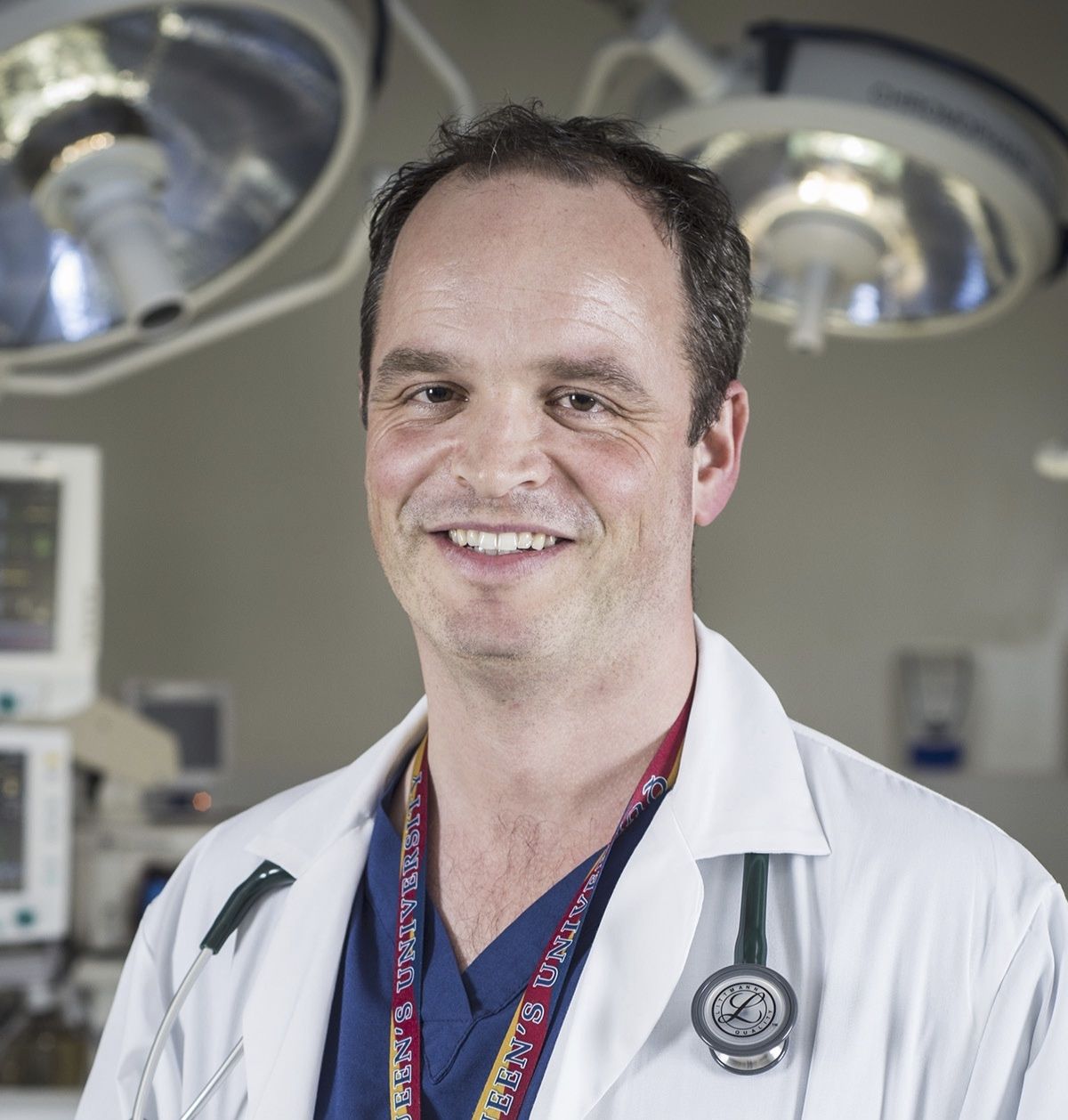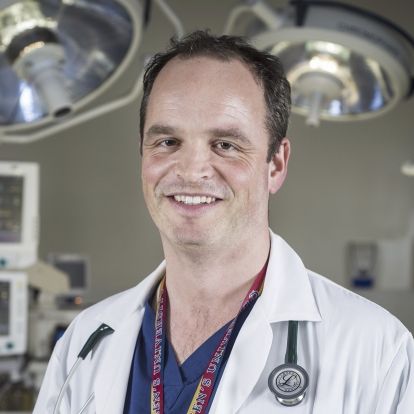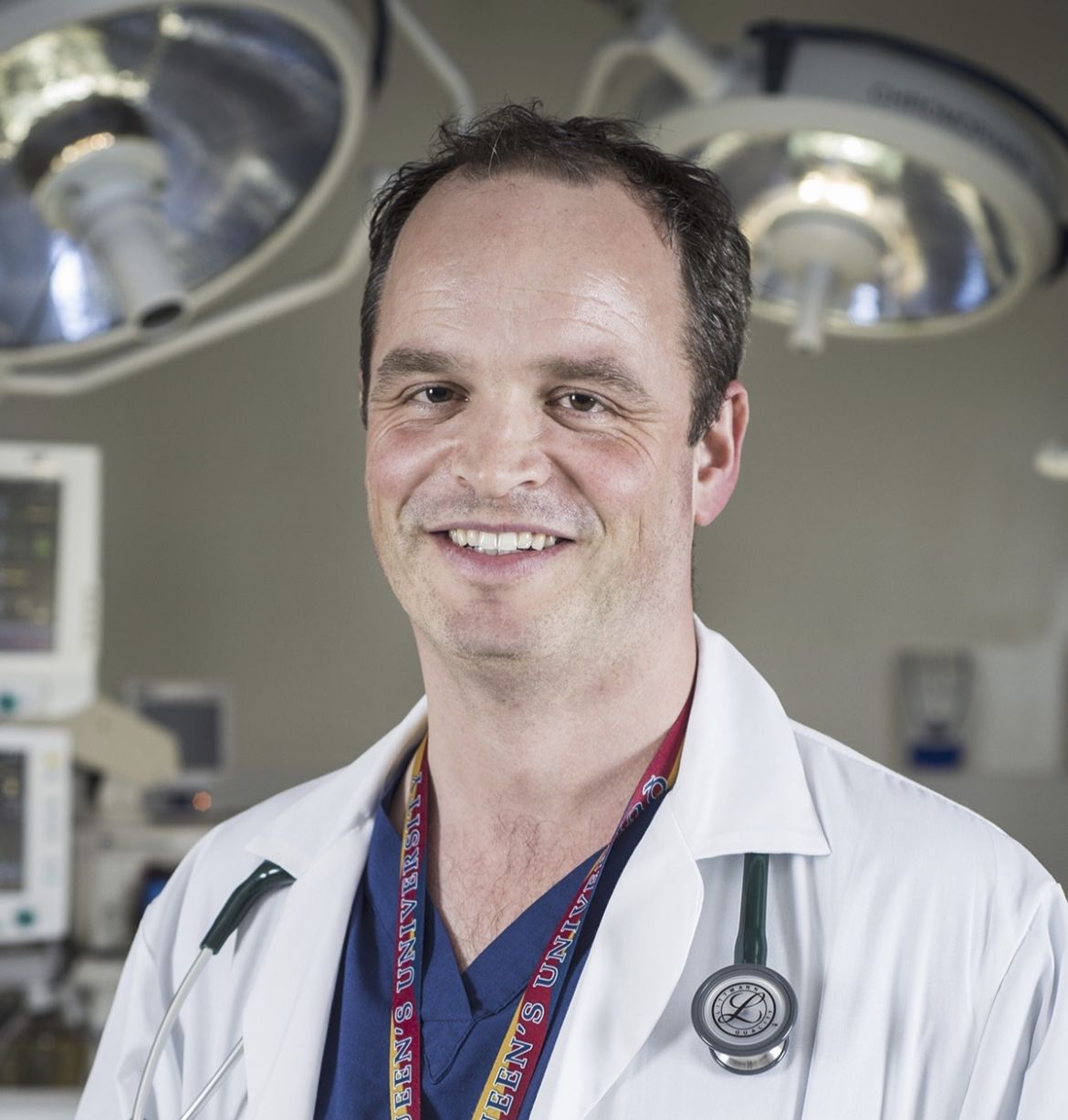
A unique, team-based research program for helping patients with the most common form of heart arrhythmia has been awarded $500,000 from the W.J. Henderson Foundation.
The brainchild of KGHRI clinician scientist Dr. Ben Glover, the program will look at the effects of lifestyle changes on atrial fibrillation (AF). The most common form of heart arrhythmia, AF affects one in four Canadians and is often diagnosed in patients with obesity, high blood pressure, Type 2 diabetes and sleep apnea. These conditions are believed to contribute to, or even worsen, the symptoms of AF. Risk for the disease increases with age.
“While studies have shown that lifestyle changes can reduce the effects of these risk factors and AF, we still don’t know what strategies or approaches work best to help patients reach those healthy goals,” says Dr. Glover, who is also Chief of the Heart Rhythm Services, Kingston Health Sciences Centre, and Assistant Professor of Medicine, Queen’s University.
The funding will help to establish a program at Providence Care Hospital using a team of specialists – physiotherapist, psychologists, nutritionists and arrhythmia nurse -- and input from patients to develop personalized programs of lifestyle changes, including a focus on healthier eating, and regular exercise, such as walking, to modify the symptoms of this condition. The team will help patients set goals, get started and keep going on their lifestyle changes, and provide encouragement and feedback along the way.
It’s believed to be the first program of its kind using a multidisciplinary team to look at whether lifestyle changes can modify the effects of AF.
“Some studies have been done in this area but because they were done in large academic institutions, they weren’t sustainable over the long term, and weren’t adaptable to other health care sectors,” Dr. Glover says. “Our aim is to work closely with each patient to find and develop lifestyle changes and exercise routines that work for them. We believe that’s the key to helping them transform these changes into daily habits over the long term.”
The team will study what kind of team-based approach works best, how these lifestyle changes affect AF, and whether these changes reduce the need for Emergency Room visits and corrective surgeries.
“We hope to show that this kind of multidisciplinary, patient-centred program can help to reduce or even reverse this condition. If so, we believe that this model could be reproduced across Canada,” Dr. Glover says.
The researchers hope to recruit 60 patients for this one-year study.
Contact:
Brigita Zile, RN CCRP
Project Manager & Site Research Coordinator
Office of Dr. Benedict Glover, Chief of Cardiac Arrhythmia Service
Biosciences Complex, South End, First Floor
116 Barrie Street, Rm # 1510
Queen's University
Kingston, ON K7L 3N6
P: 613-533-6000 ext 75699
E: @email





